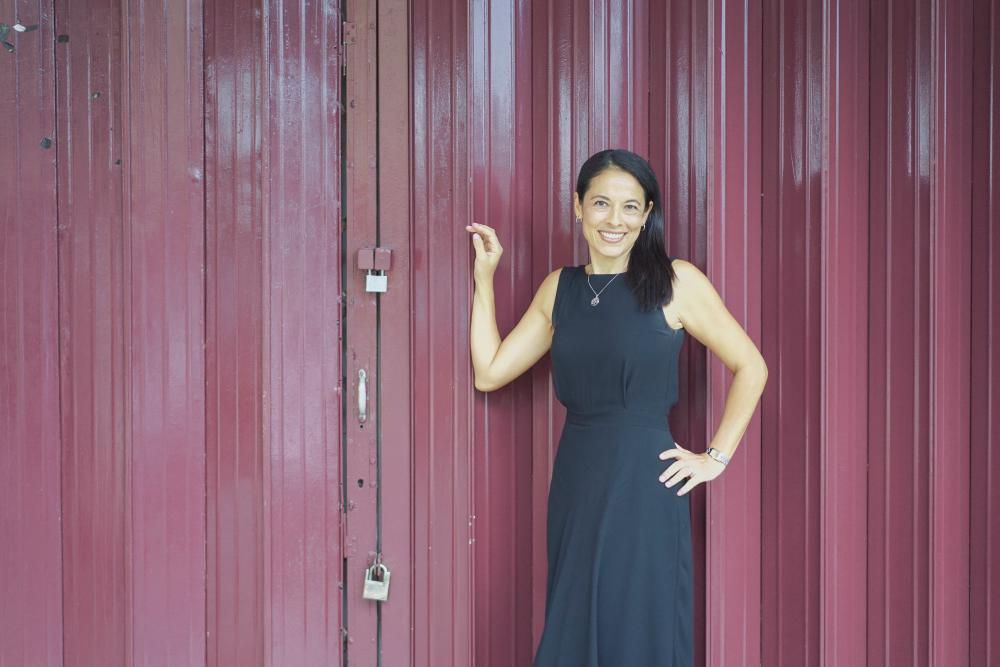WHEN Lina Teoh made her entry into the Malaysian entertainment world, it was an exciting time for the country.
Teoh became a household name playing the snobbish Susan on the groundbreaking series Kopitiam, an English-language sitcom that premiered on TV2 in 1998.
The show was recently rebooted as Kopitiam Double Shot, with some of the original cast making guest experiences in the first episode.
That reminded us of Teoh who made a great transition from being a model, actress and TV host to a documentary filmmaker.
During an interview over coffee recently, Teoh, who grew up in Melbourne, told us how she returned to Malaysia after finishing her education.
“In school I loved acting and dancing. I studied the creative arts but did not have a specific goal. But then I had friends who introduced me to a modelling agent, and I started modelling.”
She decided to try acting and met Ng Ping Ho, who directed Kopitiam.
“We were all very fresh. For most of us it was our first big acting role,” she said, referring to fellow cast members Joanna Bessey, Douglas Lim and Rashid Salleh.
“We started so small. Ping had an empty apartment with no furniture. There was no air-conditioning, it was so hot. We would go in for rehearsals with only a stand fan. That was how it all began.”
Teoh said that all of the cast wanted the show to succeed, but they never expected it to become as iconic as it did.
“It was a one-of-a-kind and it was a great representation of Malaysia at that time. The country was enjoying great economic growth. The Twin Towers were built. There was a lot of international focus here.”
Teoh also became Miss Malaysia World, and represented us at the Miss World 1998 competition in Seychelles. She was second runner-up, and remains the only Miss Malaysia to go that far in the competition.
“I was one of those people who liked to do different things at the same time. I think we had shot the first season of Kopitiam at the time. My agent and friends were bugging me to take part in the pageant.”
Teoh had always felt that pageants were not her thing, but decided to give it a try anyway.
“I was heavily into the creative arts and it was one of those things that looked like a good opportunity. I think it was also because I thought I was becoming well known in the country, and I thought I could do something with that. The idea of being in a beauty pageant at that time was that you would be given a platform to give back to society.”
After working on Kopitiam for a few more seasons, Teoh moved on to other TV shows.
However, being in the limelight came at a price, and she started to feel overwhelmed.
“So I decided to take a step back from things. Documentaries are part of my fondness for non-fiction. All the books that I read are non-fiction or biographical. I am always inspired by real-life stories. I am fascinated by different sorts of people and their life stories.
“I see documentaries as the voice of the people, and a platform for us to connect with people from all walks of life.”
She approached Nuvista Media, a leading documentary production company run by the husband-and-wife team of Harun Rahman and Lara Ariffin.
“They have been doing documentaries for decades. They took me under their wing. I started interning there.”
Teoh said she always wanted more control behind the camera, and even during her days on Kopitiam she wanted to do more than be the on-camera talent.
At that time the The National Film Development Corporation of Malaysia (FINAS) was investing a lot in documentaries, and was collaborating with international broadcasters.
“My first film with Nuvista was on the Smart Tunnel. It was a full HD documentary shot for National Geographic Channel. That same year I submitted my own story for First Time Filmmakers to the Discovery Channel.”
Lina continued to make documentaries including A Leader’s Legacy: Tun Abdul Razak, Among The Great Apes with Michelle Yeoh, Haze Over Asia and The Lion Dance King.
Seven years ago, Teoh became a mum and decided to take a bit of a break. She is currently the executive director of the non-profit organisation MyDocs, short for the Malaysian Documentary Association.
“A whole bunch of Malaysians filmmakers came up with the idea based on the fact that a group of us had a lot of international experience and [were] going to a lot of international markets and working with international broadcasters. But that was just a small pocket of filmmakers. This association was established to bridge the gap between documentary filmmakers who had international experience and those who did not.
“Getting funding is still a struggle for documentary filmmakers.
“I would say it is more of a struggle now than it was before. Investors don’t see a financial benefit. Most of the time you won’t make back the money that you invested, unless it is extremely successful on an international level. People would rather invest in blockbuster movies, because at least they will make money at the box-office.”
“We are pushing for more representation in cinemas so that we have the potential to make back some money and work with local broadcasters to help support us. We are trying to make things more sustainable for us.”









